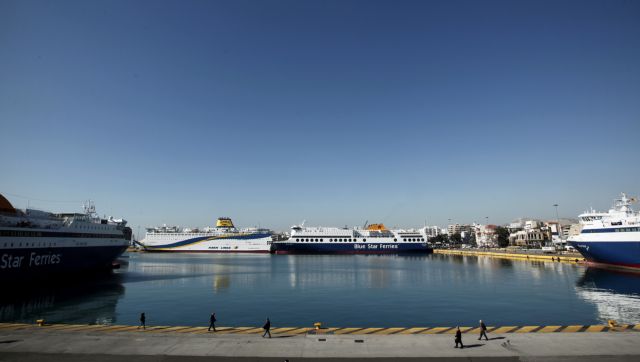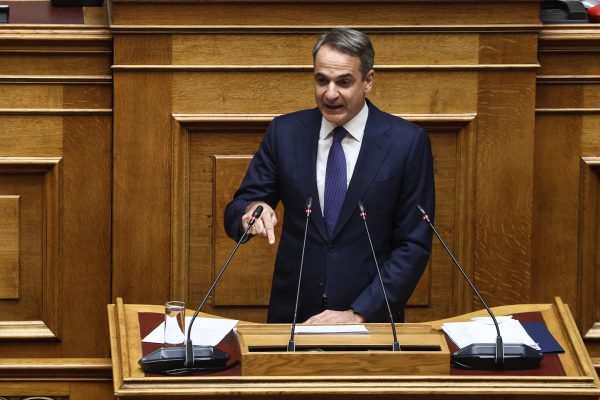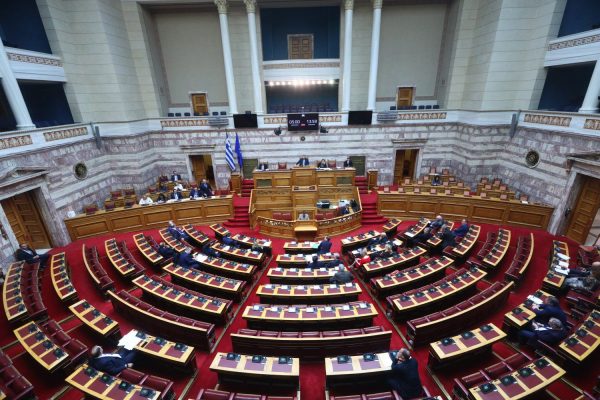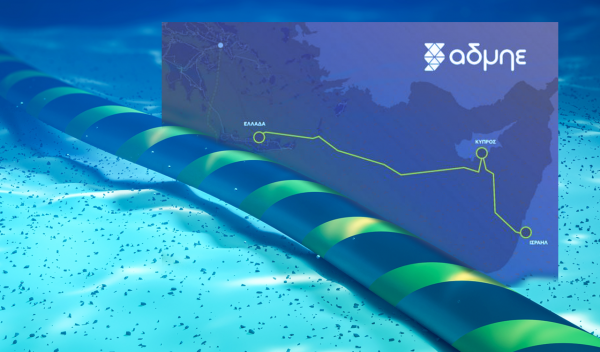
According to the president of the Shipping Passenger Business Association (SEEN), Spyros Paschalis, the coastal passenger traffic will move from 10% -20% lower compared to 2019. Speaking to NEA newspaper, he noted that in the first four months of 2022, the coastal passenger transport movement was reduced by about 20% compared to the corresponding period of 2019.
The outlook for the coming months does not show that it will reach the levels of 2019, as bookings for the third quarter of the year are even lower than those of 2019 for the same period. The work of the groups has almost been lost as a result of the two years of coronavirus, while important markets, such as the Chinese market, are still closed. In terms of cargo transportation it is moving at about the same levels as in 2019.
The big headache for coastal shipping, however, is not the reduced traffic, but the large increase in fuel costs that has forced companies to increase prices on ferry tickets.
“The cost of fuel during normal periods was 30-35% of the operating costs of ships on average. With the increases in fuel prices we are seeing, starting from the fourth quarter of 2021 and throughout 2022, we have reached a point today that is more than double the corresponding period last year, launching fuel costs to 60-70% of the operating costs of ships,” explained Mr. Paschalis.
“As you can see, it is impossible for private shipping companies to absorb this extra cost despite the mitigation efforts they have made by reducing speeds, reducing or merging certain routes and reducing other operating costs.”
The fare increase is for the President of SEEN “the last measure used to ensure the viability of the industry” and yet “in no case does it seem to be enough to cover the additional fuel costs faced by companies in our industry” but the increases can not be without limits, as “we do not want to hurt demand for our sensitive services.” In any case, “the increases in the selling prices of our services do not differ from the increases we see in the selling prices of goods and services in other sectors of the economy,” says Mr. Paschalis.
Mr. Paschalis also refutes the criticism that the shipping companies receive financial support from the state through the subsidies of the so-called “barren” lines. As he explains, “the subsidies for the execution of public service lines (barren lines) paid by the Greek taxpayer to ensure the ferry connection of small and remote islands with Mainland Greece and between them, exist because these connections do not have a satisfactory transport project (only 5% of the total) so that the ships can operate freely (without subsidies).” He also notes that “subsidies are barely enough to cover part of the ships’ operating costs”.
In addition, these funds are distributed to more than 50 vessels of various sizes, while at current fuel prices the operating costs of the vessels performing these connections have also increased sharply, without at the same time increasing the prices of tickets set by the state. Recently, SEEN sent a letter to the Ministry of Shipping and Island Policy, as revealed by Mr. Paschalis, requesting the increase of subsidies and the review of the relevant arrangements for the timely payment of subsidies in view of the public service tenders proclaimed for next year.
Finally, Mr. Paschalis pointed out that the difficult course of coastal shipping in the last two or three years has sucked valuable funds from the balance sheets of companies which are absolutely necessary to meet the two major challenges of the current decade, that of improving the energy of existing ships with the goal being to reduce greenhouse gas emissions and to start renewing the coastal fleet with new, more environmentally friendly vessels. The path to achieving these goals requires very high capital investment in existing ships but also for the construction of new ships. These funds, emphasized the president of SEEN, should be found with the contribution of all involved and interested parties in order to achieve a fair and sustainable transition to “green” coastal shipping.
Latest News

Greek PM Announces Sweeping Changes in 2025 State Budget
These measures aim to foster fairer banking practices and enhance the availability of affordable housing and credit

French Fund Meridiam Shows Growing Interest in Great Sea Interconnector
According to OT, the fund engaged in recent discussions regarding the Great Sea Interconnector with Greece’s Minister of Environment and Energy and the CEO of Greece’s Independent Power Transmission Operator (IPTO/ADMIE)

Everything to Know about Store Hours this Holiday Season
Stores and supermarkets across the country are operating extended hours, offering ample opportunities for holiday shopping

Greece Prepares for State Budget Vote as Debate Reaches Final Stages
Prime Minister Kyriakos Mitsotakis is expected to deliver his remarks late in the evening, shortly before the decisive vote that will conclude the session

DM Dendias: We talk With Turkey But We Always Bring Up Their Unacceptable Positions
Second and last day of closely watched conference, entitled 'Metapolitefsi 1974-2024: 50 Years of Greek Foreign Policy', also included appearances by PM Mitsotakis, Ex-PM Tsipras and PASOK leader Nikos Androulakis, among others

Rhodes Airport Tops Fraport Greece’s Regional Airports in 2024 Performance
According to Fraport's data, more than 35 million passengers (specifically 35.2 million) were handled by Fraport-managed airports during the 11 months.

European Central Bank Cuts Interest Rates by 25 Basis Points
It is the fourth cut of interest rates by Europe’s central bank, a move expected by the markets and financial analysts leading to the rate settling at 3%.

Airbnb: New Measures Add €600 in Extra Costs for Property Owners
Property managers face an immediate administrative fine of 5,000 euros if access to the inspected property is denied or any of the specified requirements are not met.

Economist: Greece Included in the Best Performing Economies in 2024
Meanwhile, Northern European countries disappoint, with sluggish performances from the United Kingdom and Germany.

EasyJet Expands Its Routes from Athens
The airline’s two new routes will be to London Luton and Alicante and they will commence in summer 2025.



![Φυσικό αέριο: Δυναμικό come back του LNG στην Ελλάδα [γραφήματα]](https://www.ot.gr/wp-content/uploads/2023/01/OT_naturalgas-90x90.jpeg)












![Fraport: Πάνω από 35 εκατ. επιβάτες στα αεροδρόμια το 11μηνο – Πτώση στη Μύκονο [πίνακας]](https://www.ot.gr/wp-content/uploads/2022/06/fraport-90x90.jpg)









![Airbnb: Μέχρι τέλη Δεκεμβρίου η έκδοση Αριθμού Μητρώου Ακινήτου (ΑΜΑ) [γράφημα]](https://www.ot.gr/wp-content/uploads/2023/08/airbnb-gfc775d8a0_1920-768x435-1-600x340.jpg)















 Αριθμός Πιστοποίησης Μ.Η.Τ.232433
Αριθμός Πιστοποίησης Μ.Η.Τ.232433